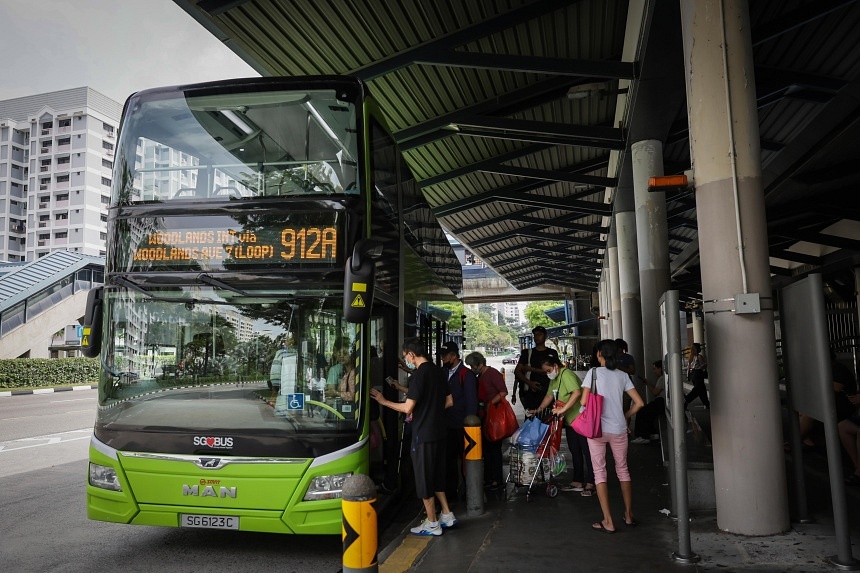4 drivers nabbed for providing illegal chauffeured services between Singapore and Malaysia
Drivers who are caught providing illegal hire-and-reward services can be fined up to $3,000, jailed up to six months, or both. PHOTOS: LTA/FACEBOOK
Elaine Lee
Aug 08, 2024
SINGAPORE - Four drivers were arrested by the Land Transport Authority (LTA) on Aug 7 for providing illegal chauffeured services between Singapore and Malaysia.
Their Malaysian-registered vehicles were also seized, LTA wrote in a Facebook post on Aug 8.
Investigations into these cases are ongoing, an LTA spokesperson told The Straits Times.
Since January, 10 drivers have been caught for providing illegal cross-border passenger transport services using foreign-registered vehicles. The penalties for those convicted include hefty fines, disqualification from driving and vehicle forfeiture, the spokesperson added.
LTA said Malaysia-registered private cars and private-hire cars cannot accept bookings on social media and messaging platforms, such as Facebook and Telegram, and provide cross-border trips or ride-hailing services in Singapore.
Checks by The Straits Times on Aug 8 found that several Facebook pages, Telegram groups, websites and more than 20 listings on online marketplace Carousell are still offering cross-border chauffeur services targeted at travellers from Singapore.
One website with a Malaysian contact number offered a ride from Singapore to Mount Austin in Johor Bahru from $100 with a multi-purpose vehicle.
There was no mention of insurance coverage or the required licence to operate cross-border services on the website.
Under the Road Traffic Act, all vehicles, including foreign-registered vehicles, must have a valid public service vehicle licence (PSVL) to provide taxi or chauffeured private-hire car services.
Anyone caught using a vehicle that is not issued with a valid PSVL may be investigated. Those found guilty face a fine of up to $3,000, jail of up to six months, or both. The vehicle used may also be forfeited.
LTA said it strongly urges the public against using services offered by unlicensed providers.
“These vehicles and their drivers are not appropriately licensed or insured and could potentially leave passengers without recourse if they are involved in a traffic accident,” LTA said.
The agency added that it is working with online platforms such as Klook, KKday and Google to remove advertisements of illegal cross-border services.
Singapore and Malaysian taxis that have been granted an Asean public service vehicle permit are the only licensed providers of cross-border rides, LTA said. Malaysian taxis will also need to obtain a cross-border PSVL.
These taxis are available for hire at Ban San Street Terminal in Rochor and Johor Larkin Terminal, which are the designated pickup and drop-off points for cross-border taxi services.
Passengers may also book cross-border trips through licensed Singapore taxi operators, LTA said.
To report illegal cross-border chauffeured services, members of the public can file a report with LTA via the contact form at
www.lta.gov.sg/feedback, or use the e-service “Report vehicle-related offences” on
www.onemotoring.lta.gov.sg
They can provide information such as the vehicle’s registration plate number, date, time and a brief account of the incident to facilitate investigations, said LTA.





